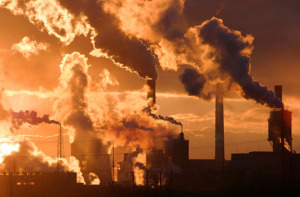
The wind and solar energy markets are two of the most actively developing markets in the world. According to the international company NPD Sоlаrbuzz, in 2013 alone, solar energy has increased by 7% compared to the previous year, and the output power of all solar panels installed for this period amounted to 31 GW.
Although the market leader is now Germany, experts also note that in the near future, China could for the first time take a leading position in the production and supply of solar installations; an increase in influence over “solar” economics is also expected for countries of the Middle East, Africa, Latin America, South-east Asia and the Caribbean, which at the moment produce only 8% of the world’s “green energy.” In 2017 South Africa, Saudi Arabia, Thailand, Israel and Mexico could occupy leading positions as well.
When it comes to the Middle East, experts estimate that this region has one of the best natural capacities in the photovoltaic energy industry, since most of the countries in this region have considerably large uninhabited territories which are exposed to intense and prolonged sunlight.
Previous mafia structures in Italy have mainly earned money on gambling, prostitution and drug trafficking. In recent years, however, criminal groups have been actively reorienting the focus of their activities. On September 14th 2010, Italian law enforcement’s Anti-Mafia Investigations Directorate (DIA) conducted an investigation which led to the freezing of assets of Sicilian entrepreneur Vito Nicastri, also known as the wind tycoon. Wind turbines and deluxe-class real estate worth more than 1.5 billion euros were seized. A close associate, according to the DIA, of well-known fugitive mafioso Mateo Messina Denaro, he has installed numerous wind turbines in Sicily in the hope of laundering criminal money and receiving significant European funding.
Many projects related to renewable energy are supported and generously funded by the EU, which is why mafia structures have a high level of interest in the European Union. Criminal groups not only from southern Italy have been actively involved in contracts on the construction of large-scale solar and wind energy installations. This has been the unfortunate result of a number of investigations by law enforcement bodies in the Canary Islands, Corsica, Romania, Bulgaria and a number of other states.
For example, in April 2010, according to the daily newspaper “El Mundo,” Spanish police found unusual solar panels in Andalusia and Castilla-la Mancha which, their owners assure, produce electricity at night. However, the police’s investigation showed that the energy produced by these devices actually came from a few diesel generators; there is very little here one would call “a renewable resource.” But this did not prevent the owners of such wonderful night solar panels from receiving significant European funding.
The reports from last year’s Europol repeatedly emphasized the need for law enforcement officials to focus on investigating criminal activities in the energy sector, including in the area of renewable energy. Europol experts express their concern about a series of criminal activities by various factions, noting, in particular, that “organized crime is considering the energy industry as a reliable means to long-term investment and money-laundering.” The EU’s “20-20-20” Plan certainly drew their attention and formed the basis for this criminal penetration into renewable energy business investments. According to the European “20-20-20” agreement, from December 2008 to 2020, each EU member country should make a commitment to reduce CO2 emissions by 20%, increase its energy efficiency 20%, and produce 20% of its electricity using renewable energy sources. In recent years, Brussels has been allocating approximately 5 billion euros every year in support of the plan. This enormous sum allowed owners of wind and solar installations access to generous European benefits, provided to them depending on the quantity of “green energy” produced.
The ambitious “20-20-20” Plan, according to Europol research, has however been faced with obvious legislative incapacity, which has allowed organized crime to infiltrate the energy sector with its capital.
Europol is not the only organization to have exposed the vulnerability of national legislation. John Etherington, a former professor of environmental science at the University of Wales and author of the widely known book “The Wind Farm Sсаm” stated in an interview with the newspaper “The Telegraph” that the wind industry is very fragile, opaque and vulnerable to corruption and crime because of lack of regulation not only in European countries, but outside that region as well.
Michael Curto, president of the FLARE Network, indicates the danger for the entire world of criminal infiltration into one of the most strategic sectors of the economy: “We note once again that there is no sector of the economy into which the mafia could not seep, and its penetration does not know geographical boundaries. Organized crime is a problem concerning many countries. Development of the wind turbine and solar power industries is actively promoted by the European Union, and recent events indeed confirm that criminals have already penetrated into this sector in many EU countries. Closing this road to the mafia should be the international community’s main goal.”
Vladimir Platov, Middle East expert, specially for the online magazine “New Eastern Outlook”.
